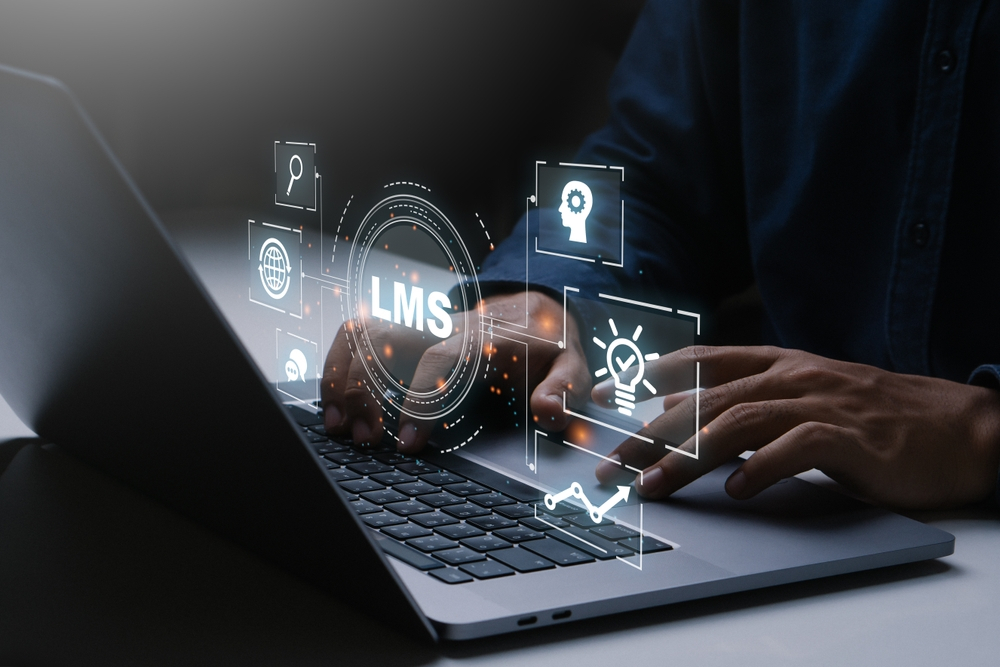The Importance of Learning Management Systems (LMS) in the Banking and Finance Sector

Learning management systems, also known as LMS, are extremely important in the banking and finance industry because they offer a method that is both organized and effective for managing training and development programs. The following are a few of the many factors that underline the significance of LMS in this sector:
- Compliance with Regulations – The banking and financial industry is highly regulated, and the laws and regulations that govern it are always updated. LMS helps guarantee that personnel are consistently taught the newest compliance needs, which in turn reduces the risk of violating legal and regulatory obligations.
- Continual Professional Development: Those who work in finance need to ensure that they are up to date on the latest developments in the sector, in terms of both trends and goods, as well as technical advances. LMS enables businesses to run continuing training programs, which in turn helps personnel improve their skills and maintain their competitive edge in an industry that is constantly undergoing change.
- Risk Management: LMS May Be Used to Create and Deliver Training Modules Regarding Risk Management, Fraud Prevention, and Cybersecurity. LMS may be used to create and deliver training modules related to risk management, fraud prevention, and cybersecurity. It is possible to educate employees on risk mitigation best practices and standards, thereby protecting both the firm and its customers.
- Orientation and Training Programs: – Products and services in the banking and financial industry are frequently very complicated. LMS is helpful in the process of onboarding new workers because it provides a centralized platform for the delivery of training materials. This helps to ensure that new employees learn the necessary information and skills as quickly as possible in order to properly perform their responsibilities.
- Standardization of Training: Learning Management Systems (LMS) make it possible for businesses to standardize training material as well as training delivery techniques. Because of this uniformity, all of the staff are guaranteed to receive the same degree of training, which helps to maintain a united and standardized approach to compliance and operational operations.
- Adaptability and ease of access: – Professionals in the financial industry frequently split their time between offices in different cities or time zones. Learning management systems (LMS) offer flexibility by enabling workers to access training materials at their own speed and convenience. This helps employees learn without interfering with their work schedules.
- Performance Tracking and Reporting: LMS systems Offer comprehensive Tracking and Reporting tools. LMS systems offer comprehensive tracking and reporting tools, which enable employers to monitor employee progress, evaluate the success of training programs, and identify areas that may require further focus. This strategy, which is data-driven, makes it possible for training efforts to undergo continual development.
- Time and Money Savings: Traditional training methods can be time-consuming and costly. The costs of travel, printed materials, and instructor fees can all be reduced thanks to the use of LMS. Additionally, it enables firms to more easily and effectively keep their training resources up to date.
- Adaptability in the Face of Technological Changes: – Technology is advancing at a breakneck pace in the financial sector, which is one of its defining characteristics. The LMS can be updated to accommodate new technologies and methods, ensuring that staff are well-versed in the most recent tools and procedures by ensuring that they are familiar with the most recent information.
- Employee Engagement and Retention: Employees that are engaged in their work are more likely to remain with a firm. The use of a learning management system (LMS) that incorporates interactive and engaging learning content, quizzes, and assessments can make the training process more pleasurable and successful, which in turn leads to increased employee satisfaction and retention rates.
In a nutshell learning management systems are an essential part of the banking and financial industry. They provide a systematic and planned approach to training and development, which is important for regulatory compliance, risk management, and continual professional development in an industry that is always growing.
Top 5 Learning management system (LMS) in Nigeria
Learning management systems (LMS) are critical in education and training in Nigeria, just as they are in many other parts of the world. Educational institutions, businesses, and organizations use LMS platforms to facilitate online learning, manage courses, and monitor students’ progress.

Importance of Learning management system (LMS)
Flexible Learning: With a diverse population and geographical challenges, LMS allows for flexible learning schedules, enabling students and professionals to learn at their own pace and convenience.
Professional Development: Many businesses and organizations in Nigeria use LMS for employee training and professional development, making certain that their personnel has the essential skills and knowledge
Monitoring and Assessment: LMS allows for easy tracking of student progress and performance. It also provides tools for assessments, quizzes, and grading.
1. Tangerine LMS enterprise learning management system designed to help organizations facilitate the administration, tracking, and reporting of online training.
A fully customizable, SCORM-compatible platform that gives L&D units the tools and flexibility to shape employee learning experiences
An integrated, secure, and user-friendly cloud-based platform with mobile access makes knowledge sharing and corporate training easy for today’s learners.
Paradiso Solutions is an LMS platform that is extremely flexible and simple to use, with a simple user interface that serves hundreds of customers worldwide. It is regarded as one of the top LMSs in Nigeria, catering to a wide range of sectors and organizations. It also provides account administration, content management, personnel management, training administration, time management, gamification, social learning, and virtual classrooms 100+ integrations, and other features.
3. Gopius
Gopius is a user-friendly platform that meets the training and learning demands of all organizations. The extensive feature set of the LMS firm in Nigeria aids in the creation of a superb learning experience. This Nigerian learning management system offers services such as course management, evaluation, white labelling, reporting, and tracking. Furthermore, this LMS in Nigeria promotes performance growth through training and learning approaches.
4. Azure Consulting
Another LMS in Nigeria is Azure Consulting, which offers CRM, ERP, operation management, financial management, project management, and data analytics. Furthermore, Azure supports third-party integration, allowing learners to access content at their leisure. It is a dynamic platform that serves all types of businesses and educational institutions.
Eyecity Solutions is yet another learning management system in Nigeria that offers educational services. The company’s main areas of expertise are Learning management systems, distance learning systems, and competency training. It seeks to reshape the education industry through successful technology applications such as e-collaboration, mobile learning, and digitizing learning content in order to increase learning quality.
A learning management system allows learners to choose from a variety of custom-developed courses and gain access to numerous learning and training tools, as well as share content and create an engaging environment. In Nigeria, there is a unique learning management system that offers outstanding e-learning solutions.
In summary, a learning management system (LMS) enhances efficiency, flexibility, and cost-effectiveness while providing robust tools for tracking, compliance, and certification.

